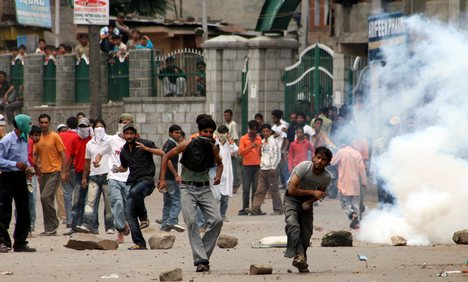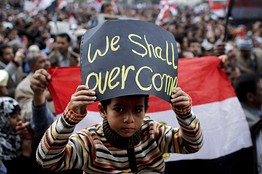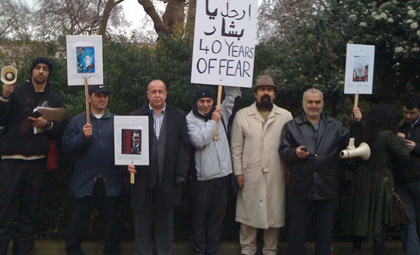 By: Ammar Abdulhamid
By: Ammar Abdulhamid
What a difference six weeks make. Back in early February I was asked whether Syria would be next on the growing list of countries to witness a popular revolution. My answer, which came in the form of an article published on Comment is free, was, in essence, “not yet”.
The “day of anger” that exiled opposition figures called for on 5 February fizzled out largely because the networks that were being built on the grounds at the time were not ready to take up such a call. Activists needed time to ensure that they had networks of supporters all over the country and that clear communication strategies and methods were agreed, both within these networks and between them and their supporters in the country and across the world.
Formulating the right messages meant to address the concerns of certain segments within Syrian society, as well as those of the international community, especially with regards to the potential role Islamists would play in a future democratic Syria, was also something that required more time.
These points were being debated online through emails and on various Facebook groups; the main thrust of the debate was not whether a revolution could take place but when. Myself and others were on the side of waiting until mid-summer at least, to give in-country activists more time to organise their networks, while others worked on messaging.
Others were less patient, with some fearing a Gaddafi victory in Libya could make it more difficult to plead our case for revolution to the Syrian people; they pushed for a quicker move. Obviously, seeing that Syria has been caught in the midst of a revolutionary upheaval since the Ides of March, it was this latter side that won the debate.
But who were these debaters? And who are the revolutionaries?
 This was not one particular group, organisation or a political party. These were not some opposition figures living in exile, or in country. These were, for the most part, young people, teens and twentysomethings, living inside Syria.
This was not one particular group, organisation or a political party. These were not some opposition figures living in exile, or in country. These were, for the most part, young people, teens and twentysomethings, living inside Syria.
These young revolutionaries had already decided it was time to act before going online to network and look for mentors and advisers from the ranks of successful revolutionaries in Tunisia and Egypt, as well as those of established opposition figures and democracy activists in Syria and abroad. Each group of activists gravitated towards those for whom they felt greater sense of respect and affiliation on the basis of their own established worldviews and priorities. Then they communicated with each other and agreed on priorities. They were the leaders on the ground – after all, this is their revolution.
Some might still see the current situation in Syria as too localised and/or contained to amount to a full-scale revolution. However, considering the kind of regime we’re dealing with – and Bashar al-Assad’s smug attitude when he declared to the Wall Street Journal shortly before this development that his regime is popular, connected to the grassroots and, hence, immune to the kind of revolutionary upheavals sweeping across the region – it is not an exaggeration to call the current situation a revolution, albeit in its early phases.
 How the situation will continue to unfold is anyone’s guess. But something has become patently clear: once people break the barrier of fear and take to the street in a police state like Syria, violent crackdowns will only strengthen their resolve. As one caller from Deraa told an Arab news anchor recently: “We have one demand: freedom. We will continue to pursue it until we achieve it or die trying.”
How the situation will continue to unfold is anyone’s guess. But something has become patently clear: once people break the barrier of fear and take to the street in a police state like Syria, violent crackdowns will only strengthen their resolve. As one caller from Deraa told an Arab news anchor recently: “We have one demand: freedom. We will continue to pursue it until we achieve it or die trying.”
And what does freedom mean to the people of Deraa? Considering that the statue of the late dictator Hafez al-Assad in downtown Deraa has been demolished, that all pictures of Assad on city walls have been defaced and often replaced with “Down With Assad”, that the governor’s office has been burned, that the offices of the telecommunications companies owned by Rami Makhlouf, a cousin of Assad, have also been burned, your guess is as wild as mine.
The protesters at the small town of Madaya near Damascus must have made the same guess when they chanted in their own little demonstration on 20 March: “The people want to bring down the regime.”
Should Assad continue to dither and be blind to the writing on the wall, more and more people will be adopting the above refrain. The situation may or may not unfold as quickly as it did in Tunisia and Egypt, but that’s not too relevant. Now the barrier of fear has been broken, more and more people will be willing to shout that the emperor has no clothes and, more importantly, that the age of emperors, clothed or not, has come to an end in our part of the world and in our country. And not a moment too soon.

Leave a Reply
You must be logged in to post a comment.